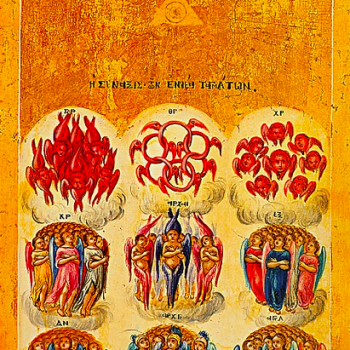Around 7 on a weekday morning, the Piazza district in Addis Ababa still sleeps. Apart from a couple of bedraggled shoeshine boys sitting on the curb, the streets in this area of the Ethiopian capital are empty. The neighborhood's many theaters and upscale storefronts—jewelry shops and travel agencies—are still shuttered. But as the city's cultural center and a major thoroughfare, the Piazza district will awaken within the hour and its streets will be jammed with pedestrians and automobiles, as residents hurry to work.
But one business in the district, the Tomoca Coffee House, opens before dawn to cater to an early-bird clientele. The aroma of freshly brewed coffee that escapes through its entrance reminds passersby that a new day has started.
Since 1953, the family-owned shop has served what its many loyal customers consider the finest coffee in the capital. A fixture in the neighborhood, the shop has changed little over the past half century. The wall's many coffee stains and fading yellow paint attest to its longevity.
Inside, longtime patron Legesse Feyissa hovers over one of several crowded, elbow-high tables, sipping a steaming cup of coffee. Bald, thick-shouldered, and dressed in a tweed blazer, he greets friends and fellow patrons with a smile and a traditional Ethiopian greeting.
The men shake their right hands, pull each other close so their right shoulders touch, reach their left arms around and pat each other on the back.
A family man with a successful trading company, Mr. Legesse enjoys his first coffee of the day at Tomoca's, where he catches up with a group of old friends before heading to work. Over coffee, the men discuss politics, their families, and their careers.
"Tomoca serves the best coffee in Addis. Akalu [the owner] reads books. He knows as well as anyone how to buy and roast good coffee," says Mr. Legesse. "Look around. There are no teenagers, no kissing, no video games. It's just old people speaking the same language."
For centuries, Ethiopians have cultivated coffee and, with it, a coffee culture.
According to tradition, an Ethiopian goat herder named Kaldi from the province of Kafa was the first man to discover coffee. Born around the year 650, he lived during the waning years of the Christian Aksumite Empire. A husband, father of two daughters, and foster parent to an orphaned nephew, Kaldi one day noticed his flock of goats dancing energetically. He determined the cause of their peculiar behavior to be the red coffee drupes they nibbled off nearby bushes. He took some of the fruit home, and he and his family began experimenting with them for culinary use.
When his nephew, Giorgis, entered the local Orthodox monastery, he shared his family's coffee roasting recipe. The monks enjoyed the drink and soon made a habit of offering it to brothers visiting from other monasteries across Ethiopia. Eventually, word of the delightful drink reached the monasteries of the Byzantine Empire and, in time, the rest of the world.
Proud of this heritage, Ethiopians of all backgrounds and creeds celebrate coffee, and regard drinking it as an important social event.
Many families, especially in small or rural communities, regularly take turns hosting traditional coffee ceremonies. Generally, the woman of a household invites her female friends and neighbors for an afternoon coffee. The tradition requires she roast the coffee beans by hand over a coal furnace. On her hands and knees, she smashes the roasted beans in a mukcha, or heavy wooden bowl. She then places the fresh grounds in a jebena, or clay pot, and adds hot water to brew a rich, distinctly Ethiopian coffee. In towns, often the coffee is served with fresh popcorn.
The women dress in traditional clothes and often gather in the hostess's yard, where she lays freshly cut grass and burns incense. For a couple of hours, the women will drink coffee and enjoy each other's conversation before returning home.
The importance of coffee in Ethiopian culture corresponds to its central role in the nation's economy. Coffee beans account for up to 60 percent of Ethiopia's total revenue from exports each year. More than half of the coffee beans produced in Ethiopia are tagged for export. Most end up in markets and restaurants in the Arabian Peninsula, Europe, Japan, and North America.
As much as a quarter of the nation's 85 million people depend directly or indirectly on the coffee industry for their livelihoods.
More than a million farmers produce coffee beans. Most of them are sustenance farmers who own less than a hectare of land (less than two and a half acres), have little capital at their disposal, and survive very close to the poverty line. These farmers usually bring their crop to market on the backs of donkeys and are extremely vulnerable to climatic and market forces as well as the unfair business practices of local merchants.




